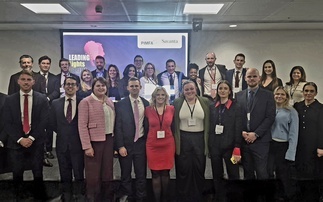Simple products, commission removal on protection and universal applications were on the agenda yesterday in a Cover Forum panel debate.
John Ritchie, chief executive at Ellipse, one of four panellists, said complexity had not served the market well and opaque products were "the enemy".
Andy Chapman, chief executive at Exeter Family Friendly, said simple product proposals in the recent steering group report was simply talking about products people could understand and claim on.
Roy McLoughlin, partner at Master Adviser and third panellist, said:"The positive side is it will bring crucial products to the fore like income protection (IP) because the awareness in the public domain is very low.
"There are some people in the government who think this product will be taken up without the adviser community.
There has to be a big green neon arrow saying this is the first step and then to seek advice."
Panellist Alan Lakey, senior partner at Highclere Financial Services, added: "If you step away from it the income replacement proposal is an inferior product and I would not want to sell it to my clients."
McLoughlin said there was a "huge danger" of problems if the adviser was cut out of the loop.
A delegate asked the panel: "If the government is stupid enough to think simplified products are the answer then can we also expectthe equally stupid potential commission ban on protection?"
Ritchie said he sensed there was a backlash in the European Union where commission had been banned and doing it in the UK would be a complicated, drawn-out process.
Delegates were asked to interactively vote on the potential commission ban; 70% said they thought it would be the next big change to tackle.
Lakey said: "Logic says it will not happen but that does not have any part in the industry anymore. It should not happen but we know protection has to be sold with a marketing approach."
McLoughlin pointed out there was no consumer detriment because with the exception of IP you cannot over-insure somebody.
He said: "We need to go to the new powers that be at the FCA and make them aware of the situation. If commission goes it will kill the industry.
"If you try to start charging people fees on this they will just be priced out of the market."
Chapman said there was "absolutely no way" there would be a commission-free industry because distributors needed to be remunerated.
Ritchie countered that it was not black and white and that the market would shrink yet adapt.
And a delegate argued that removal of commission would spell the end if the protection intermediary market not the protection market.
Later delegates were split down the middle when voting on whether RDR would drive an influx of inexperienced IFAs into protection. And 25% were concerned about the reputation of the industry.
The panel also discussed issues with advisers filling out medical disclosure forms and inefficiencies in GP report processes.
Chapman said rather than Subject Access Requirements as a way forward more targeted questions could be asked on applications.
McLoughlin said the advantages of tele-underwriting were clear.
A delegate asked the panel if universal application forms were the answer.
Lakey said the application forms were getting longer and there needed to be a simplified version.
"I am not sure what the answer is but perhaps online and interactive technology can play a part," he said.












